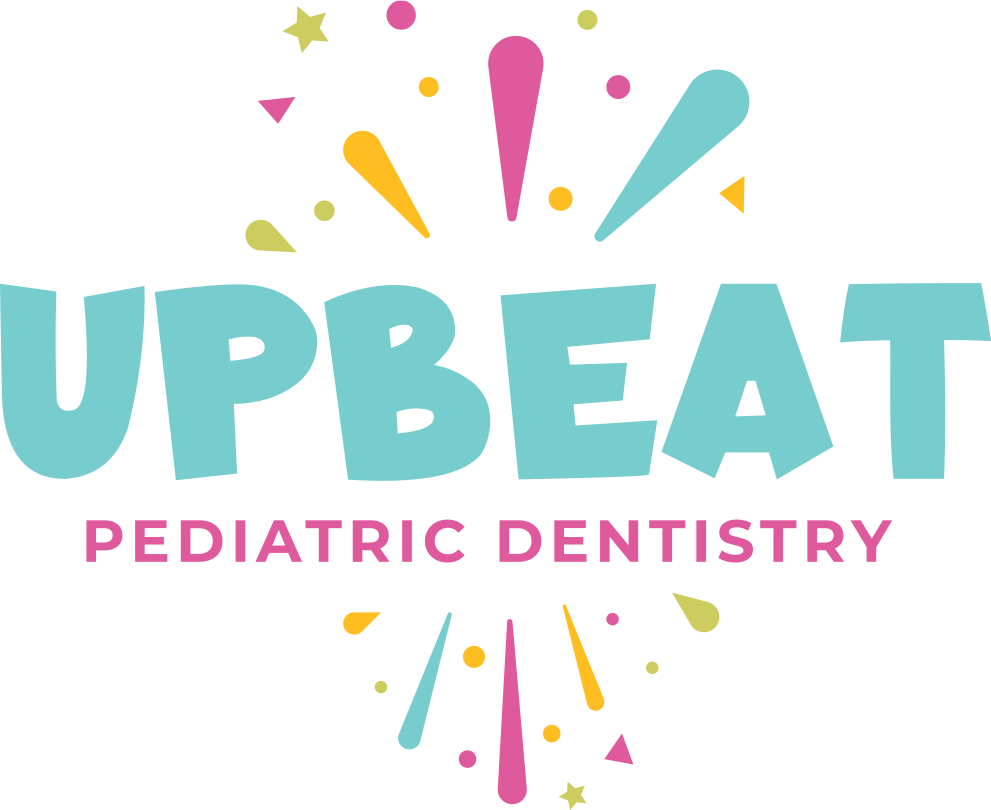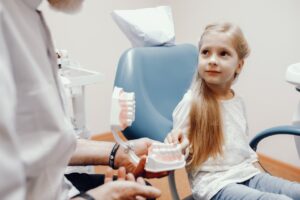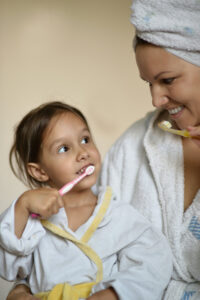When it comes to oral hygiene, parents often wonder about the necessity of mouthwash in their child’s dental routine.
With a plethora of oral care products available on the market, it can be challenging to discern which ones are truly essential for maintaining optimal dental health.
In this blog post, we’ll delve into the role of mouthwash in oral hygiene for children and explore whether it’s a must-have addition to their dental regimen.
The Purpose of Mouthwash
Mouthwash, also known as mouth rinse or oral rinse, is a liquid product used to rinse the mouth, typically after brushing and flossing. It comes in various formulations, including fluoride mouthwash, antibacterial mouthwash, and cosmetic mouthwash.
The primary purpose of mouthwash is to:
- Freshen breath by killing bacteria that cause bad breath.
- Reduce plaque and gingivitis by reaching areas that may be missed by brushing and flossing alone.
- Provide additional protection against cavities by delivering fluoride to the teeth.
First and foremost, it’s essential to understand that mouthwash should be viewed as a complement to, rather than a substitute for, proper oral hygiene practices.
While mouthwash can be beneficial in certain situations, its necessity for every child’s oral hygiene routine is up for debate.
The Controversy Surrounding Mouthwash
Despite its potential benefits, mouthwash is not considered an essential component of oral hygiene for children by most dental professionals. This is because:
- Proper brushing and flossing techniques are the foundation of good oral hygiene. Mouthwash should not be viewed as a substitute for regular brushing and flossing but rather as a supplement to these practices.
- Some mouthwash formulations contain alcohol, which can be harmful, especially for children. Alcohol-based mouthwashes can cause a burning sensation in the mouth and may be too harsh for young children’s sensitive oral tissues.
- Mouthwash is not recommended for children under a certain age, as they may accidentally swallow it. Swallowing mouthwash, especially fluoride-based varieties, can lead to fluoride toxicity and other adverse effects.
- Mouthwash may contain artificial colors, flavors, and other additives that are unnecessary for maintaining oral health.
- Over-reliance on mouthwash may create a false sense of security and lead to neglect of proper brushing and flossing habits.
While mouthwash can be beneficial for some individuals, its use should be approached with caution, especially when it comes to children’s oral health.
Alternatives to Mouthwash
For parents seeking alternatives to traditional mouthwash, there are several options available:
Fluoride Toothpaste: Using fluoride toothpaste is one of the most effective ways to prevent cavities and maintain good oral health. Children should brush their teeth with fluoride toothpaste twice a day, under adult supervision, to ensure proper cleaning.
Water: Encouraging your child to rinse their mouth with water after meals can help wash away food particles and bacteria, reducing the risk of cavities and gum disease.
Sugar-Free Gum: Chewing sugar-free gum can stimulate saliva production, which helps neutralize acids in the mouth and wash away food debris. Look for gum containing xylitol, a natural sweetener that has been shown to reduce cavities.
Healthy Diet: A balanced diet rich in fruits, vegetables, and whole grains can contribute to overall oral health by providing essential nutrients that support strong teeth and gums.
Regular Dental Visits: Scheduling regular check-ups with a pediatric dentist is crucial for monitoring your child’s oral health and addressing any concerns or issues that may arise.
Conclusion
In conclusion, while mouthwash can be a helpful addition to some children’s oral hygiene routines, it is not essential for maintaining good dental health.
Ultimately, the decision to incorporate mouthwash into your oral care routine should be based on your specific dental needs and the guidance of your dentist.
Parents should focus on teaching their children proper brushing and flossing techniques and encourage healthy habits that promote overall oral health.
While mouthwash can offer certain benefits, it should not be viewed as a replacement for essential oral hygiene practices. By prioritizing regular brushing, flossing, and professional dental care, you can ensure that your smile remains healthy and vibrant for years to come.







